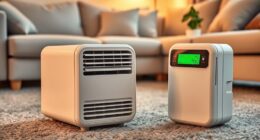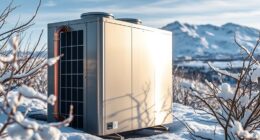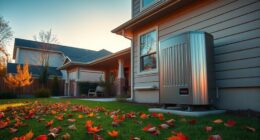We have all experienced the discomfort of high energy bills at one point or another.
Is there a solution that allows us to save money and help the environment simultaneously? That’s where modern heat pumps come in.
In this article, we’ll dive into the cost-efficiency of these innovative systems, exploring the factors that impact their efficiency and the strategies we can employ to maximize savings.
Get ready to uncover the secrets of cutting-edge heat pump technology and start serving both our wallets and the planet.
Key Takeaways
- Heat pumps are highly efficient systems for heating and cooling, providing heating and cooling at a fraction of the energy cost compared to traditional systems.
- Regular maintenance, choosing the right size, adequate insulation, and weatherization are important factors for improving heat pump efficiency and reducing energy costs.
- Comparing the Seasonal Energy Efficiency Ratio (SEER) and Heating Seasonal Performance Factor (HSPF) ratings can help determine the energy efficiency of different heat pump systems.
- While heat pumps have a higher upfront cost, they offer long-term energy savings, minimal maintenance, and a longer lifespan compared to traditional heating systems.
The Basics of Heat Pump Technology
We will now explore the fundamentals of heat pump technology.
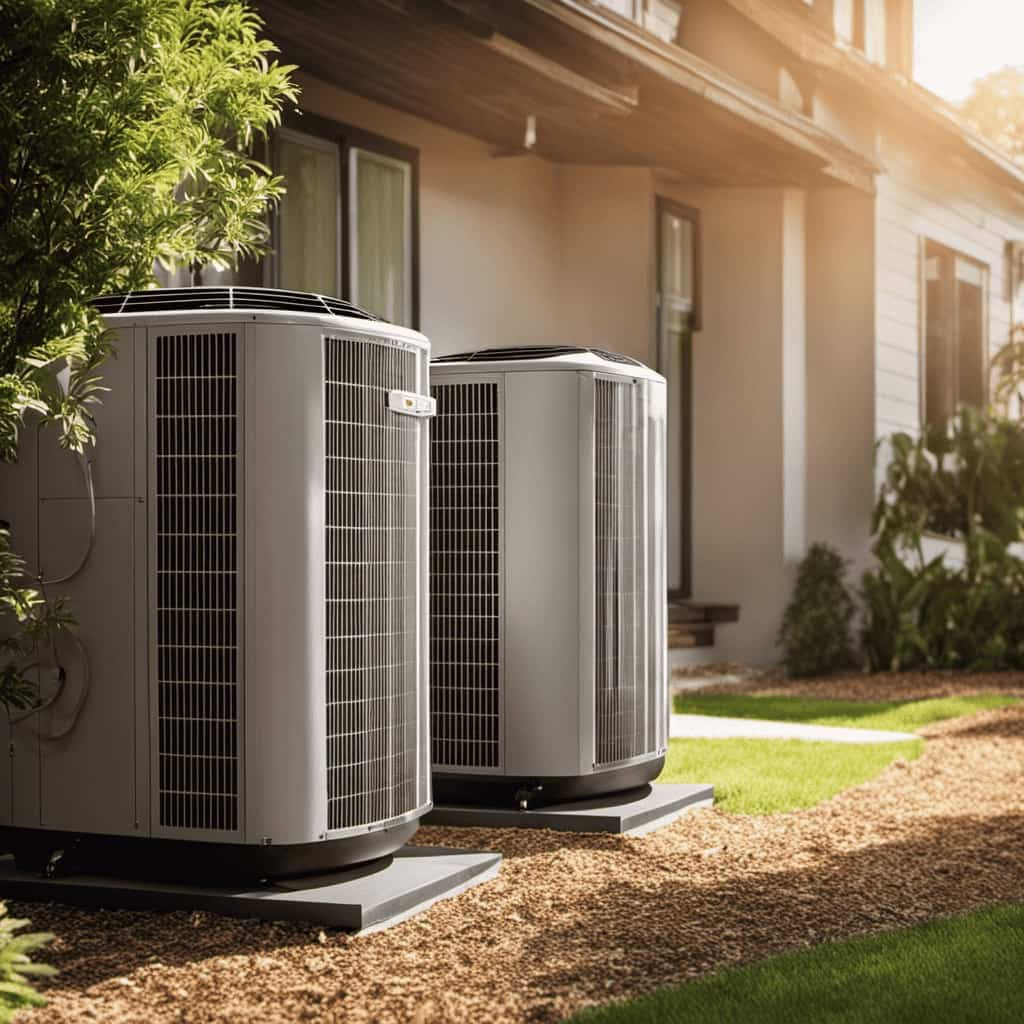
Heat pumps are highly efficient systems that serve as both heating and cooling solutions for homes and businesses. One of the main advantages of heat pumps is their energy efficiency. They work by transferring heat from one location to another, rather than generating heat from scratch. This means that they can provide heating or cooling at a fraction of the energy cost compared to traditional systems.
Another advantage is that heat pumps have lower carbon emissions, making them a more environmentally friendly option. However, there are also a few disadvantages to consider. Heat pumps may struggle to provide sufficient heating in extremely cold temperatures, and they can be more expensive to install than other systems.
Nonetheless, the benefits of heat pump technology make them a popular choice for those who desire energy efficiency and sustainability.
Factors Affecting the Cost-Efficiency of Heat Pumps
There are several factors that can affect the cost-efficiency of heat pumps, and understanding these factors is crucial for maximizing energy savings. Here are some key considerations:

-
Heat pump maintenance: Regular maintenance is essential to ensure optimal performance and efficiency. This includes cleaning or replacing filters, checking refrigerant levels, and inspecting electrical connections. By keeping your heat pump in good working condition, you can improve its efficiency and extend its lifespan.
-
Proper sizing: It’s important to choose a heat pump that’s the right size for your home. An oversized or undersized heat pump can result in inefficiency and higher energy costs. A professional HVAC technician can help determine the appropriate size based on your home’s heating and cooling needs.
-
Insulation and weatherization: Adequate insulation and weatherization play a significant role in heat pump efficiency. By properly insulating your home and sealing any air leaks, you can minimize heat loss and improve the overall efficiency of your heat pump.
-
Government incentives: Many governments offer incentives and rebates for installing energy-efficient heat pump systems. These incentives can help offset the initial costs of purchasing and installing a heat pump, making it more affordable and cost-effective in the long run.
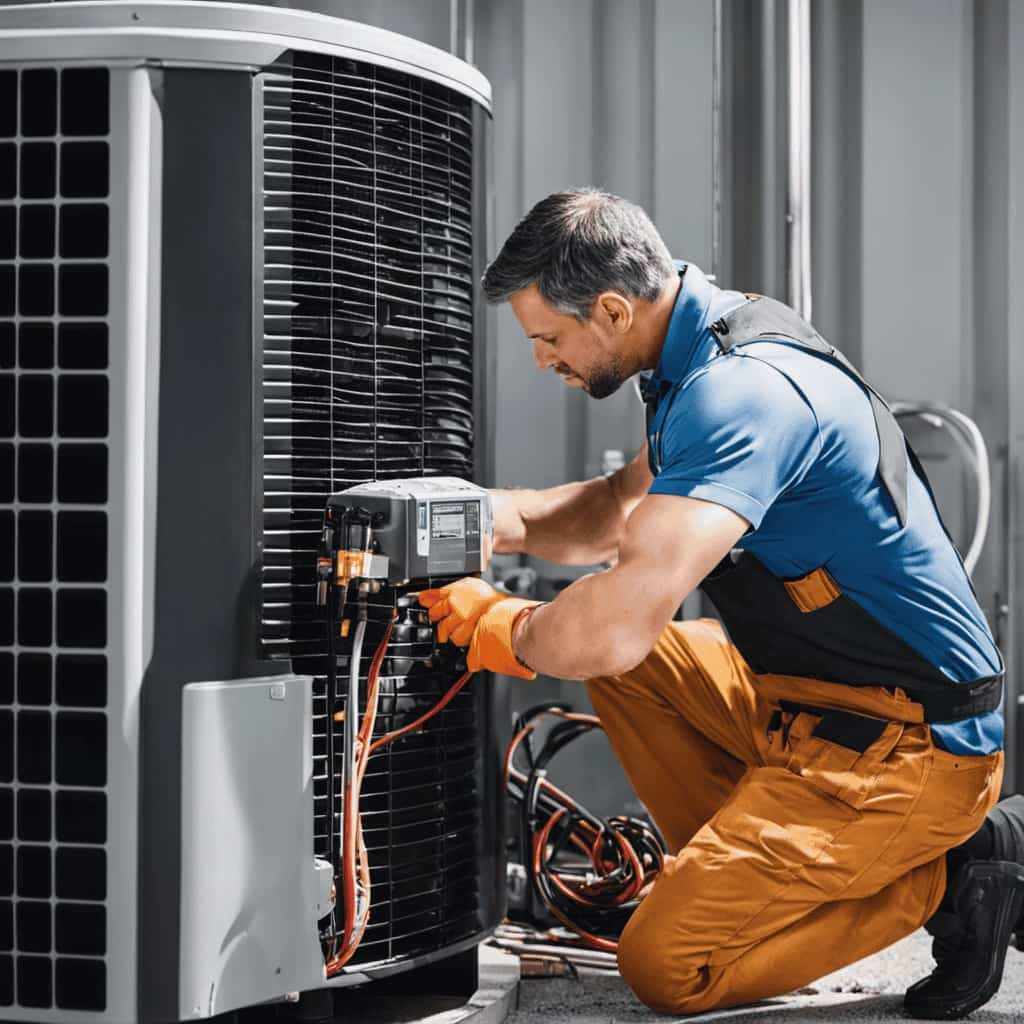
Comparing the Energy Efficiency of Different Heat Pump Systems
Our goal is to compare the energy efficiency of different heat pump systems in order to determine the most cost-effective and environmentally friendly option.
When it comes to heat pump performance, it’s important to consider the Seasonal Energy Efficiency Ratio (SEER) and the Heating Seasonal Performance Factor (HSPF). These metrics measure the cooling and heating efficiency of the system respectively. A higher SEER and HSPF rating indicates a more efficient heat pump.
Additionally, it’s crucial to evaluate the environmental impact of the heat pump systems. Look for models that use eco-friendly refrigerants and have low carbon emissions.
Understanding the Lifecycle Cost of Modern Heat Pumps
To fully comprehend the cost-efficiency of modern heat pumps, it’s important to assess the lifecycle cost of these systems. Conducting a thorough lifecycle analysis allows us to evaluate the long term savings of investing in a heat pump.

Here are four key factors to consider:
-
Initial Investment: While heat pumps may have a higher upfront cost compared to conventional heating systems, they offer significant energy savings over time, resulting in lower utility bills.
-
Maintenance and Repairs: Heat pumps generally require minimal maintenance and have fewer moving parts, reducing the need for costly repairs.
-
Energy Efficiency: Heat pumps are highly efficient, using renewable energy sources to generate heat, which leads to lower energy consumption and reduced operating costs.

-
Lifespan: Modern heat pumps have a longer lifespan compared to traditional heating systems, ensuring long term savings and a higher return on investment.
Understanding the lifecycle cost of modern heat pumps allows us to make informed decisions and maximize our long term savings.
Now, let’s explore cost-saving strategies for maximizing heat pump efficiency.
Cost-Saving Strategies for Maximizing Heat Pump Efficiency
Let’s explore some cost-saving strategies to maximize heat pump efficiency.
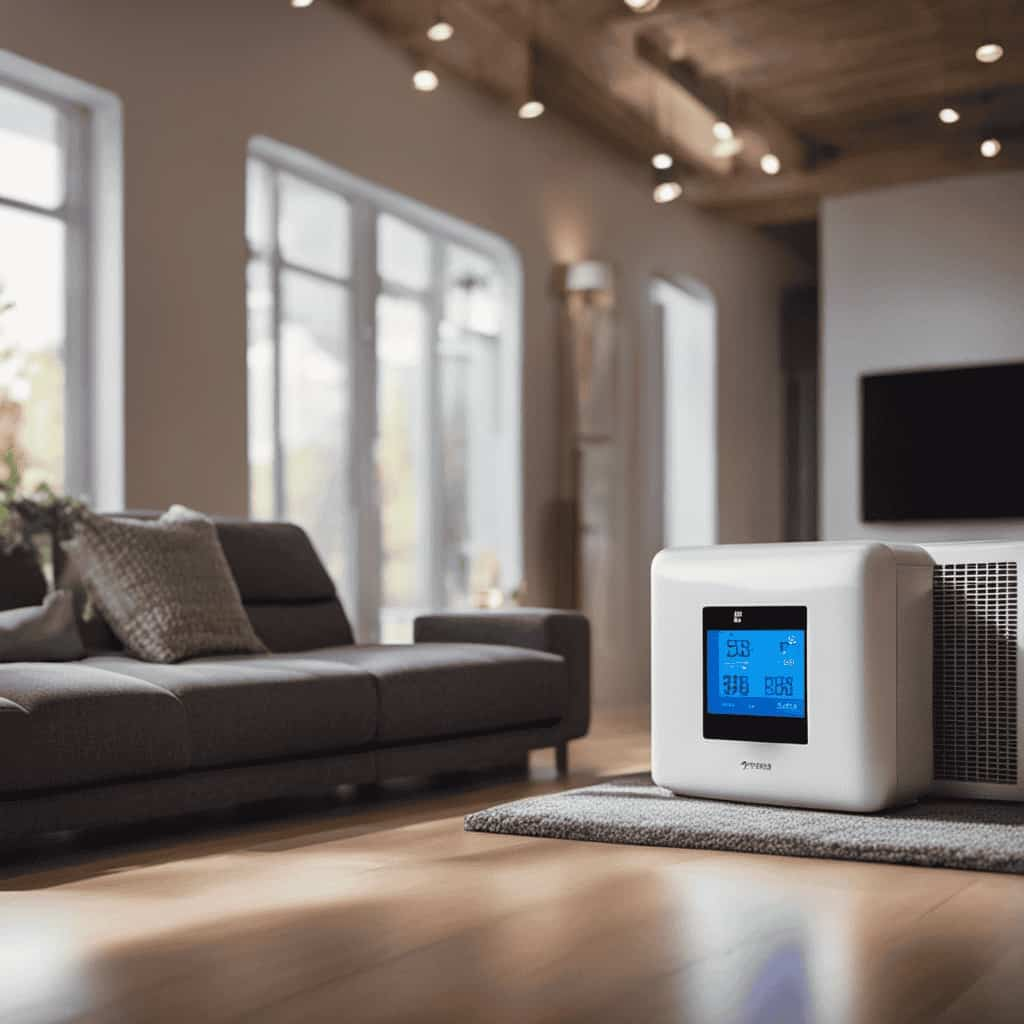
When it comes to keeping our homes comfortable while also saving money, there are a few key tips to keep in mind.
First, it’s important to properly maintain your heat pump by scheduling regular maintenance checks and cleaning or replacing filters as needed. This will ensure that your heat pump is running efficiently and effectively.
Additionally, using a programmable thermostat can help you save energy and money by automatically adjusting the temperature when you’re not at home.
Another cost-saving technique is to properly insulate your home to prevent heat loss and keep the warm air inside.
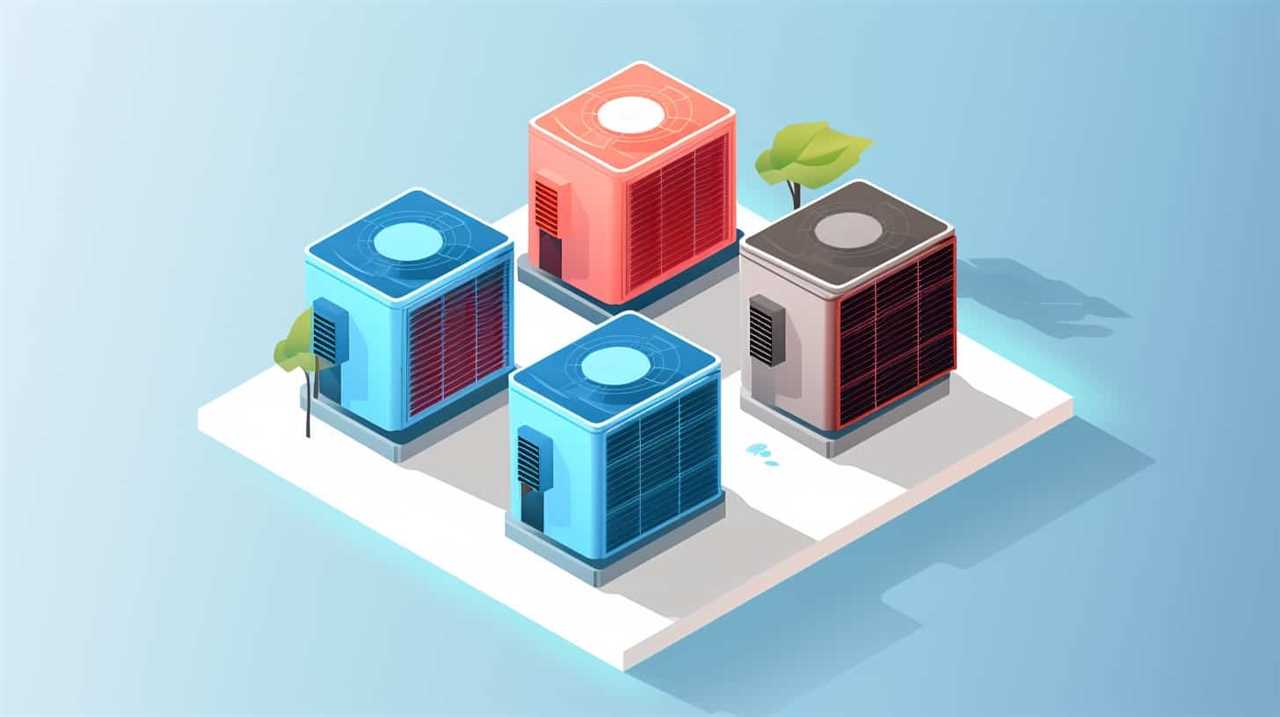
Lastly, consider using ceiling fans to circulate the air and reduce the workload on your heat pump.
Frequently Asked Questions
Are There Any Government Incentives or Rebates Available for Installing a Heat Pump?
There are government incentives and rebates available for installing a heat pump, which can help offset the initial cost. These cost savings make heat pumps a more affordable and energy-efficient option for homeowners.
How Long Does a Typical Heat Pump Last Before Needing to Be Replaced?
Heat pumps typically last around 15-20 years before needing replacement. Factors such as regular maintenance, usage patterns, and climate can affect the lifespan. It’s important to understand these factors for optimal heat pump longevity.
Can a Heat Pump Be Used to Both Heat and Cool a Home?
Yes, a heat pump can be used for both heating and cooling a home. It offers cost-efficiency and numerous benefits, such as energy savings, consistent indoor temperatures, and being environmentally friendly.
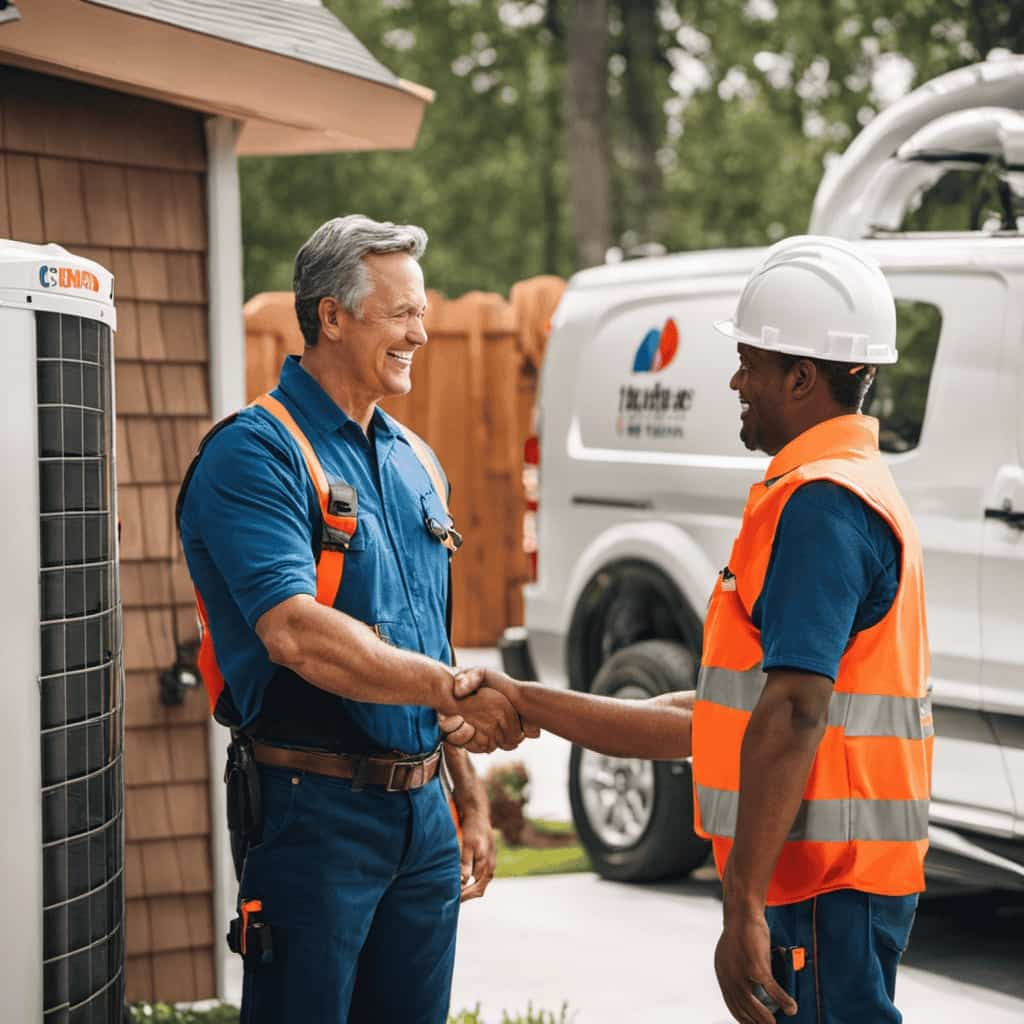
Are Heat Pumps Noisy When They Are Operating?
Heat pumps can be noisy when operating, but modern models are designed to minimize noise levels. The impact of noise on residential areas is taken into consideration, ensuring a quieter and more comfortable living environment.
What Maintenance Is Required for a Heat Pump and How Often Should It Be Performed?
Heat pump maintenance is crucial to ensure its optimal performance. We recommend scheduling regular maintenance, like changing filters and inspecting the system, to avoid any potential issues. Frequency may vary, but it’s typically done annually.
Conclusion
In conclusion, modern heat pumps aren’t just cost-efficient, they’re mind-blowingly efficient! These incredible machines harness the power of nature to provide heating and cooling solutions that aren’t only environmentally friendly, but also wallet-friendly.
By understanding the factors that affect cost-efficiency and implementing cost-saving strategies, homeowners can truly maximize the benefits of their heat pump systems.
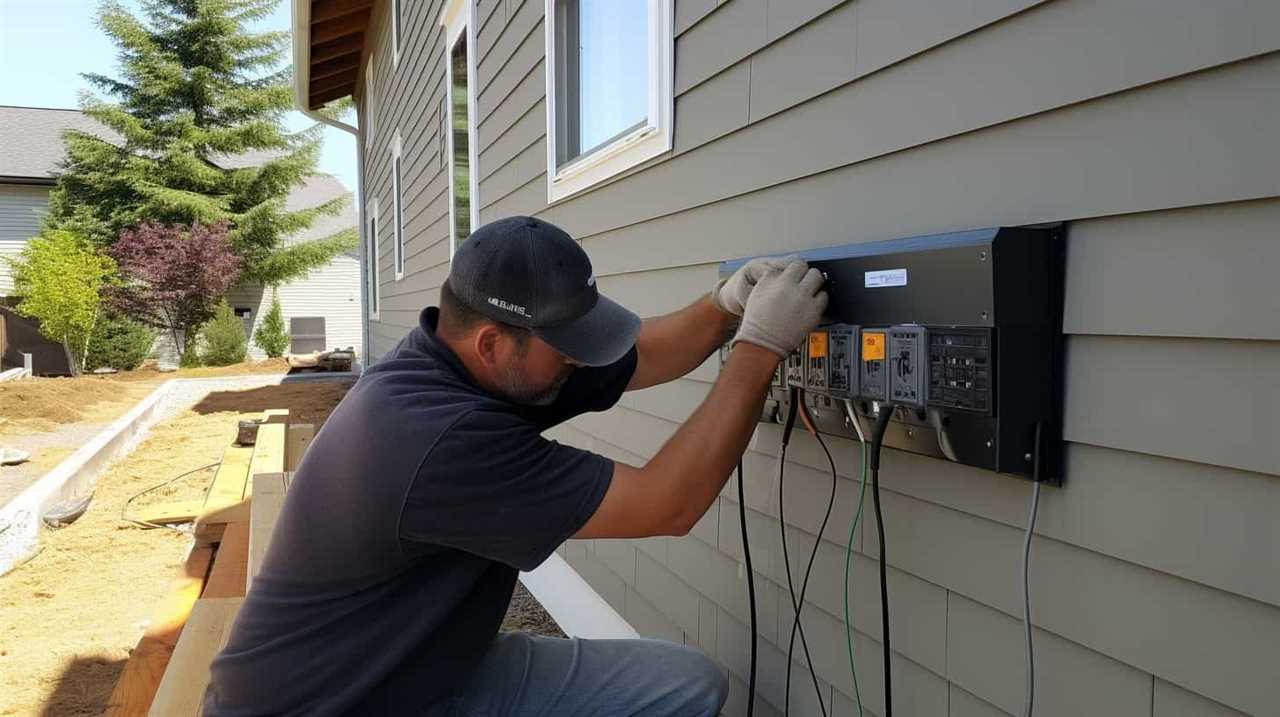
So, why settle for anything less when you can have the astonishing efficiency of a modern heat pump?






